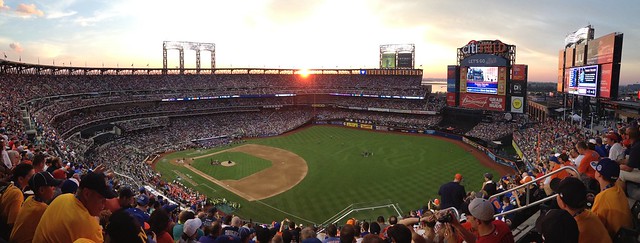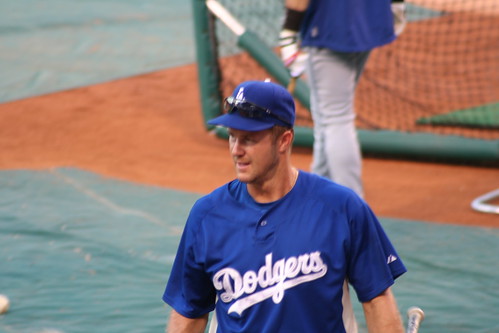Don't Do This, Don't Do That: MLB Player Contracts Forbid Just About Everything
- by Ryan Garcia
Major League baseball players have the life. They spend February and March enjoying sunny Arizona or Florida, get paid big bucks to play a game for the next six months (seven, if it's a good season) and then do whatever they want the other three to four months of the year. Well, maybe not "whatever" they want. As salaries increased, restrictions in MLB player contracts have, too.

Photo by gargudojr via Flickr.
Standard Language
MLB offers a standard contract for all major league players to which salary, bonus and special covenants can be added. The boiler plate language in all of these contracts includes a paragraph prohibiting the player from participating in certain activities. Known as Paragraph 5(b), the player agrees not to participate in "certain other sports [that] may impair or destroy" the player's extraordinary baseball skill. Should the player be injured participating in any of these activities, the team would have a basis for voiding the remainder of the contract or converting the salary from guaranteed to nonguaranteed.
Included in the paragraph are two absolute prohibitions: professional boxing and wrestling. It then goes on to list numerous sports and activities the player is prohibited from doing without written authorization from the team. Skiing, sky diving, auto racing and motorcycle racing are among them. "(A)ny game or exhibition" of basketball, soccer, ice hockey and football are also specifically listed, followed by the catch-all "other sport involving a substantial risk of personal injury."
Additional Restrictions
Individual club regulations are added in an addendum or covenant. Although some teams include more restrictions for the higher-paid players, CBSSports.com reports that the Chicago Cubs include additional activity prohibitions in all of their major league player contracts.
Among the non-boilerplate restrictions are working on an airplane (including as a pilot) as well as simply being a passenger in a single-engine plane. Extreme sports like bungee jumping and hang gliding, riding or racing horses, snowmobiling, luging and bobsledding are also included. Riding motorcycles, participating in rodeos and mountain climbing are understandable restrictions, but it might be surprising to learn that the additional list also includes martial arts like karate and judo, chopping wood, polo and even handball. Oh, and spelunking, which is a fun way of saying exploring caves.
The Reality
Professional athletes possess a competitive spirit and enjoy excitement, making enforcement of all of these restrictions a daunting task. Jeff Kent broke his wrist reportedly while riding a motorcycle before his 2002 season with the San Francisco Giants. Either the Giants chose to overlook the violation or they gave Kent permission to ride, most likely with the requirement that he wear a motorcycle helmet.

Photo of Jeff Kent by pvsbond via Flickr.
Ron Gant wasn't so lucky after his 1994 motorcycle accident. The Atlanta Braves cut him and had to pay only a fraction of his outstanding $5.5 million contract. Aaron Boone seriously injured his knee during a pick-up basketball game. Since basketball appears in Paragraph 5(b), his contract was no longer guaranteed. The New York Yankees waived him and paid less than $1 million of his $5.75 million deal.

Photo of Ron Gant by DVIDSHUB via Wikimedia Commons.
Surf the Web and you'll find plenty of instances where MLB players are participating in supposedly restricted activities. C.J. Wilson races cars. Felix Hernandez skis. R.A. Dickey climbs mountains. Either teams are granting permission or enforcement is lax. Either way, maybe their off-season isn't as exciting as we thought.

Photo of C.J. Wilson by Keith Allison via Wikimedia Commons.
New! Comments
Have your say about what you just read! Leave me a comment in the box below.Like The Best Baseball Blog
+1 The Best Baseball Blog
Hot Stores! |


